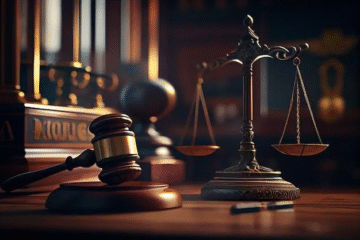
This article is written by Muskan Dangi of 8th semester of BALLB Hons. of FIMT, GGSIP University, Delhi, an intern under Legal Vidhiya
ABSTRACT
To ensure documents’ legitimacy and compliance with the legal requirements, witness attestation is an important standard practice for the execution of legal documents. Legally binding documents usually require witnesses to guarantee their validity and legal soundness. The successful resolution of disputes and the thorough verification of documents signed by attesting witnesses analytically depend on fundamental assumptions about those documents. When witnesses properly attest to documents, courts presumes these documents are authentic. The court presumes the document authentic until otherwise it is disputed by another party. This research deals with the relevant legal provisions under the Indian Laws mainly under the Indian Evidence Act, 1872[1], with insistence on sections 68 to 71[2] and also under Bhartiya Sakshya Adhiniyam, 2023[3] underlining sections 69 to 72[4] which deals with the standard procedure of witness attestation and other important rules. It also deals with relevant case laws and their importance in shaping the rules regarding such presumptions.
KEYWORDS
Documentary Evidence, Authenticity, Presumptions, Attestation, Execution, Legitimacy, Disposition, Provision(s)
INTRODUCTION
The Indian Evidence Act defines documentary evidence as any material item presented to a court or tribunal to prove a fact. Examples of material items that could be included comprise contracts, invoices, receipts, photographs, videos, audio recordings, emails, text messages, and other written or recorded documents. Recorded evidence, as defined by the Indian Evidence Act, offers compelling objective proof, in addition to dependable proof of facts relevant to legal cases.
Documentary evidence must meet several criteria, including relevance, authenticity and probative value and is governed by many rules and procedures before admission. Documentary evidence plays an important role in many court cases due to its large effect on case outcomes.
That is why it is required to ensure authenticity of documents submitted in the court by certain means like documents to be certified by attested witnesses. The provisions for the same are given in Indian Evidence Act and now in the Bhartiya Sakshya Adhiniyam 2023.
Courts often use witness attestation to confirm that important documents, like wills, contracts and deeds, are genuine. Attestation creates legitimacy because it shows the document’s signature was freely given in addition to being impartially witnessed. Court decisions about whether a challenged document is legitimate and enforceable are considerably shaped by key legal assumptions. These assumptions accelerate some aspects of the evidence process while fully preserving the integrity of all official documents.
The Indian Evidence Act of 1872 and now the Bhartiya Sakshya Adhiniyam of 2023, and other related legislation, govern the presumptions about documents executed by attesting witnesses. Sections 68-71 of the Indian Evidence Act and 69-72 of the Bhartiya Sakshya Adhiniyam lay forth the requirements and evidentiary considerations for attested documents. This article looks at these provisions, their practical implications, and the protections they offer against fraud and forgery.
DOCUMENTARY EVIDENCE AND ITS ADMISSIBILITY
In Indian law, there are two methods for establishing the facts of a document: oral evidence and documentary evidence. The Indian Evidence Act’s Chapters 4 and 5 address these two methods.
The Indian Evidence Act defines documentary evidence as any material item presented to a court or tribunal to prove a fact. Contracts, invoices, receipts, photographs, videos, audio recordings, emails, text messages, and other written or recorded information can all be included. The Indian Evidence Act’s purpose for documentary evidence is to provide objective and reliable proof of the presence of facts relevant to a judicial proceeding.
Documentary evidence is governed by a number of laws and processes, and its admission is dependent on meeting certain criteria, such as authenticity, relevance, and probative value. The importance of documentary evidence in legal proceedings cannot be overstated, since it may have a considerable influence on the outcome of a case.
Documentary evidence is an important part of presenting evidence in court in India. It is stated under Section 3[5] of the Indian Evidence Act and Section 2[6] of the Bhartiya Sakshya Adhiniyam, and it is often viewed as more credible than oral testimony.
The doctrine of Vox Audita Perit, Literra Scripta Manet[7], highlights the importance of written or documentary evidence over oral evidence since words spoken are forgotten easily or are easily misinterpreted but words written are kept. Consequently when judges are presented with both oral and written evidence, they give more merit to the latter.
PRESUMPTION REGARDING DOCUMENTS EXECUTED BY ATTESTING WITNESSES
The presumption of executed documents means courts assume documents are legal, genuine and accurate in certain situations. These presumptions assume certain facts are true unless evidence disproves them. They are helpful to judicial procedures.
All properly signed or executed documents are authoritatively presumed to be the work of the named individual and this presumption constitutes an important factor in legal proceedings. This presumption applies when the document appears to be legitimate and regular on the surface.
Wills are one example of a document that requires attesting witnesses to sign. Wills, unlike other papers, require more examination owing to the possibility of fraud or improper influence. The mere existence of the document does not create a presumption of execution. There are certain criteria’s under Section 63 of the Indian Succession Act, 1925[8], and Section 68 of the Indian Evidence Act[9], which an individual must comply for execution of a will.
Additionally, presumptions are not conclusive proof. They are used as beginning points in litigation. If a person contests an executed document, then he must bring forth conclusive proof regarding the fabrication or fraud with the document.
PROTOCOL FOR ATTESTATION
Attestation requires a witness to confirm, unequivocally, that they observed someone properly sign a document. The standard protocol is as follows:
Step-1 – Execution of document
The executant, if legally mandated, shall provide a signature or mark on the document in the presence of a minimum of two witnesses. The document’s execution requires witnesses.
Step-2 – Witnessing the execution
The document requires every attesting witness’s signature and the executant must be present during the signing. Concurrent signing is not required, but each of the two witnesses must have observed the executant signing the document.
Step-3 – Declaration
Witnesses should be somewhat familiar with some of the document’s contents, although complete reading is not mandatory. They guarantee the document’s execution was entirely voluntary; furthermore, it was free from coercion.
Step-4 – Registration (if required)
The Indian Registration Act of 1908 mandates registration for specific legal documents and this includes important instruments such as wills, sale deeds and mortgage deeds. Attesting witnesses might need to appear before the registering authority; their presence may be necessary to complete the registration process.
LEGAL FRAMEWORK REGARDING DOCUMENTS EXECUTED BY ATTESTING WITNESSES
- Section 67 BSA / Section 68 IEA – Proof of Execution of Documents Required by Law to Be Attested
This section mandates that every document requiring attestation be backed by at least one attesting witness who is alive and capable of testifying. This clause ensures that the court has firsthand evidence that the document has been executed.
- Section 68 BSA / Section 69 IEA – Proof where no attesting witness found
When no attesting witness is available, Section 69 allows for proof of execution using alternate techniques, such as evidence of the executant’s handwriting or signature. The following clause ensures that the absence of witnesses does not render the document invalid.
- Section 69 BSA / Section 70 IEA – Admission of execution by party to attested document
This provision states that if the party against whom the document is sought to be proven accepts its execution, attestation is not necessary. This simplifies the evidence process in uncontested cases.
- Section 70 BSA/ Section 71 IEA – Proof when attesting witness denies execution
This section discusses Secondary Evidence of Attesting Witness. If an attesting witness disagrees or is unable to recollect the execution of the document, this provision permits the party relying on the document to submit further evidence to authenticate its execution. This serves as a protection against uncooperative or forgetful witnesses.
CASE LAWS
DHANI RAM & ORS V SHIV SINGH[10]
The Supreme Court reiterated that at least one attesting witness is required to prove the execution of the Will under Section 68 of the Indian Evidence Act, 1872 (IEA), in line with Section 63 of the Indian Succession Act, 1925 (ISA). The court rejected the appeal against the High Court’s decision that the will of the appellant’s maternal aunt Leela Devi was invalid. The bench, consisting of Justices C.T. Ravikumar and Sanjay Kumar, noted that neither Lok Nath Attri nor Chaman Lal satisfied the requirements of Section 68 of the Evidence Act, which calls for at least one attesting witness to the Will to demonstrate its execution in accordance with Section 63 of the Succession Act.
Leela Devi prepared and registered a will. Dhani Ram, Leela Devi’s brother’s son, inherited the property given by Leela Devi’s husband, Sohan Lal, in the Will. Shiv Singh, Sohan Lal’s brother’s son, challenged the Will’s legality. The Trial Court, Appellate Court, and High Court all reached different opinions about the Will’s legality. The Trial Court determined that the Will was defective due to inconsistent testimony from the attesting witnesses. The Appellate Court, on the other hand, determined the Will to be valid since Leela Devi was of sound mind and it was reasonable for her to create a Will on behalf of her brother’s son.
However, the High Court decided that the Will was invalid since Dhani Ram had a significant interest in its execution and registration, and there were inconsistencies in the attesting witnesses’ statements. The Appellant filed a civil appeal, challenging the High Court’s decision.
The Bench determined that the attesting witnesses did not fulfill the legal requirements established in Section 63(c) of The Indian Succession Act for confirming the validity of the Will. One witness said that the testator signed the Will in their presence, whereas the other flatly denied this. However, neither witness confirmed that they signed the Will in front of the testator, which is a fundamental requirement under Section 63(c) of the ISA.
Furthermore, the Court noted that Dhani Ram had the burden of presenting additional proof to support Leela Devi’s execution of the Will, which he failed to do. The Bench ruled that the essential legal elements for demonstrating the validity of the Will were not met, and the property will be transferred to Shiv Singh through intestate succession under Section 15 of The Indian Succession Act.
M.N. ABDUL JABBAR V. H. VENKATA SHASTRI[11]:
The Supreme Court summarized the following requirements for a valid attestation-
- For an attestation to be deemed valid, it must be performed by two or more individuals. The executant himself should have personally recognized the witnesses, or they should have seen the executant sign the pertinent document.
- Each attesting witness must see the executant sign or make his thumb impression, or see someone else sign while the executant is there and serving as their guide.
- To witness or attest to the document, each of them should sign the instrument in front of the executant, indicating that he witnessed the executant’s signature or had personal recognition of it. However, if the attestation is done for another reason, such as establishing his position as a scribe or registering officer, he is not an attesting witness.[12] Thus, the witness must sign with the goal of attesting.
- The attestation can only take place when the legal document has been completed and is considered authentic. [13]
- The signature of an attesting witness on a legal document is recognized in all forms and formalities and may constitute valid attestation. There is no standard form of attestation that parties must follow.
RAMABAI PADMAKAR PATIL V. RUKMINIBAI VISHNU VEKHANDE[14]
It is a well-established fact that the person drafting a will has an obligation to remove any suspicious features, as per the ruling in Ramabai Padmakar Patil v. Rukminibai Vishnu Vekhande[15]. However, these features must be real, relevant, and legitimate, and they cannot be the result of the doubting mind’s imagination.
JANKI NARAYAN BHOIR V. NARAYAN NAMDEO KADAM[16]
The Supreme Court held that when examination of one attesting witness is examined, he has to satisfy in his evidence the attestation of will by him and other attesting witness to prove the due execution of the will. It means that the attesting witness will also fall short of attestation if he fails to satisfy in his evidence, the attestation by the other witness since the attestation of the will does not merely mean signing of it but also need all the formalities fulfilled under the Section 63 of the Succession Act. If the person asked to prove the will under Section 68 of the Evidence Act is unable to establish that the will was properly executed, the other available attesting witness must be asked to supplement his testimony to make it complete in all respects.
“Where one attesting witness is examined and he fails to prove the attestation of the will by the other witness there will be deficiency in meeting the mandatory requirements of Section 68 of the Evidence Act.” (Quoted and followed in: Lalitaben Jayantilal Popat vs Pragnaben Jamnadas Kataria[17])
RAMESH VERMA V. RAJESH SAXENA[18]
In this case also, the apex court held that just like any other document, a will is to be proved according to the provisions of Section 68 of the Evidence Act and The Indian Succession Act, 1925. The propounder of the will have to satisfy that the will was signed by the testator, who was at the time of signing was of a sound mind, understood the nature and effect of his disposition and signed the document on his own free will. The concerned will can only be used for execution when at least one attesting witness is called for the purpose of execution. This condition remains the same even when the opposite party specifically contend the document since this is the mandate of Section 68 of The Evidence Act.
VESAKHA SINGH V. JAT SINGH
In the matter of Vesakha Singh v. Jat Singh[19], it was held that the obligation to prove by satisfactory evidence that the will on which the propounder relies was signed by the testatator, and the testator at the time of signing was of sound mind , and he understood the nature an effect of the disposition , and placed his signature with his own free will, without any force, coercion or undue influence.
RECENT DEVELOPMENTS
There has been some recent developments regarding the attestation of documents by witnesses. The Bhartiya Sakshya Adhiniyam, enacted in 2023 replaced The Indian Evidence Act of 1872 aiming to consolidate and modernize the documentation and attestation ensuring fair trials.
The most significant changes in this new Act are the removal of references to the colonial history and the unification of parts, while maintaining a framework that is essentially the same as the present Evidence Act.
CONCLUSION
Documentary evidence is critical in the legal system and is frequently used in court to demonstrate facts and validity. The Indian Evidence Act of 1872 has several provisions regarding the admission and proving of documented evidence. ss
Sections 61-72 of the aforementioned Act deal with aspects of documentary evidence such as handwriting proof, attestation, party admission, and exceptions to the attestation requirement. To be admissible in court, recorded evidence must be carefully checked and the record’s validity established.
The relevance and importance of the attestation have been addressed in various cases, and it is recognized that an individual can offer legitimate attestation by affixing a mark intended to witness the fact of execution and that the executant is not subjected to undue influence, coercion, or fraud. The witness is then required to back up these facts in court, if necessary.
REFERENCES
- https://www.verdictum.in/court-updates/supreme-court/section-68-evidence-act-at-least-one-attesting-witness-is-required-to-prove-the-execution-of-a-will-for-it-to-be-valid-under-section-63-of-the-succession-act-sc-reiterates-1498474
- https://indiankanoon.org/doc/29758259
- https://indianlawlive.net/2023/06/16/how-to-prove-a-will-in-courtis-presumption-enough-to-prove-a-registered-will
- https://www.casemine.com/judgement/in/56ea846b607dba371ebca396
[1] Indian Evidence Act, 1872, No.1, Acts of Parliament, 1872
[2] Indian Evidence Act, 1872, § 68-71, No.1, Acts of Parliament, 1872
[3] Bhartiya Sakshya Adhiniyam, 2023, No. 47, Acts of Parliament, 2023
[4] Bhartiya Sakshya Adhiniyam, 2023, § 69-72, No. 47, Acts of Parliament, 2023
[5] Indian Evidence Act, 1872, § 3, No.1, Acts of Parliament, 1872
[6] Bhartiya Sakshya Adhiniyam, 2023, § 2, No. 47, Acts of Parliament, 2023
[7] “Oral and Documentary Evidence- A Comparative Perspective” – Journal of Indian Legal Studies, 2019
[8] The Indian Succession Act, 1925,§ 63, No. 39, Acts of Parliament, 1925
[9] Indian Evidence Act, 1872, § 68, No.1, Acts of Parliament, 1872
[10] Dhani Ram (deceased) (through LRs) & others v. Shiv Singh, (2024) 5 SCC 200 (SC)
[11] M.L. Abdul Jabbar Sahib v. H.V. Venkata Sastri & Sons & Ors. (1969) AIR 1969 SC 1147
[12] B. Rajegowda v. H.R. Shankere Gowda, AIR 2006 Kant 48, ILR 2005 KAR 5501, 2006 (6) KarLJ 237
[13] Sant Ram v. Kamala Prasad, MANU/SC/0043/1951
[14] Ramabai Padmakar Patil v. Rukminibai Vishnu Vekhande (2003) 8 SCC 537
[15] Ramabai Padmakar Patil v. Rukminibai Vishnu Vekhande, (2003) 8 SCC 537
[16] Janki Narayan Bhoir v. Narayan Namdeo Kadam (2002) Supp. (5) SCR 175
[17] Lalitaben Jayantilal Popat vs Pragnaben Jamnadas Kataria AIR 2009 SC 1389, (2008) 15 SCC 365
[18] Ramesh Verma v. Rajesh Saxena, 2017-1 SCC 257
[19] Vesakha Singh v. Jat Singh, (1996) 114 PLR 45
Disclaimer: The materials provided herein are intended solely for informational purposes. Accessing or using the site or the materials does not establish an attorney-client relationship. The information presented on this site is not to be construed as legal or professional advice, and it should not be relied upon for such purposes or used as a substitute for advice from a licensed attorney in your state. Additionally, the viewpoint presented by the author is personal.




0 Comments